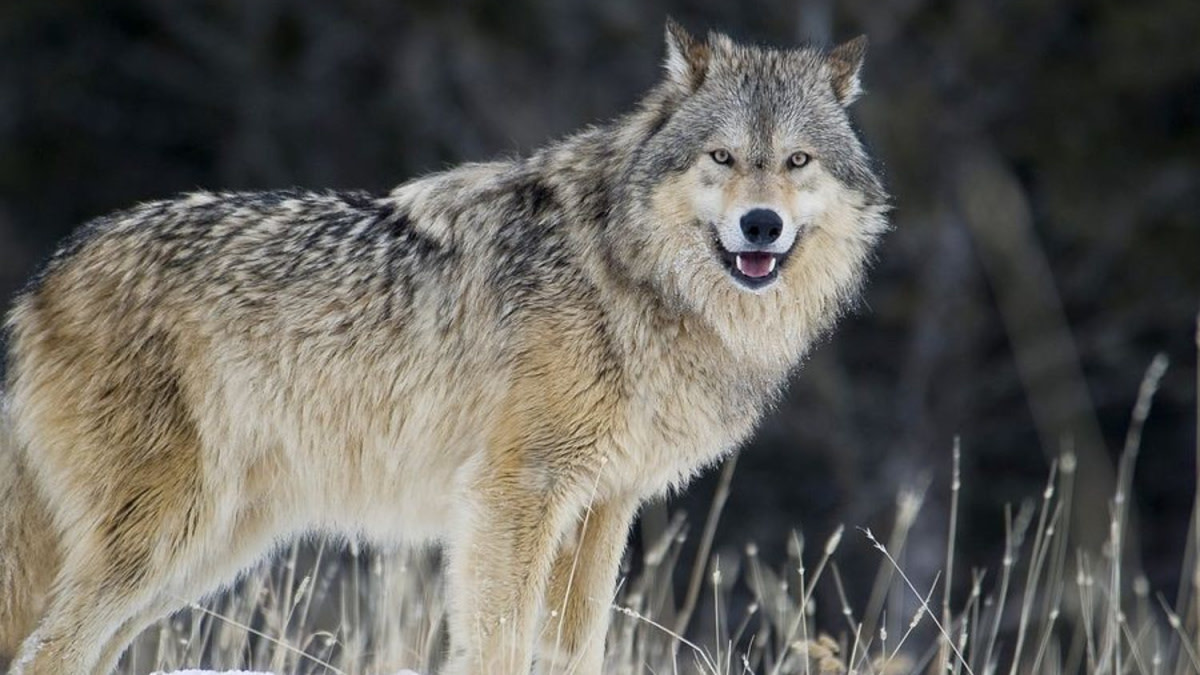Idaho Passes Bill to Kill 90% of Wolves

A bill intended to dramatically decrease wolf populations in Idaho passed both chambers of the legislature and now goes before the governor to become law.SB 1211removes most regulations, seasons, and bag limits for wolf harvest and provides an additional $190,000 per year toward hiring contractors to kill the predators.
This legislation, pushed by the agriculture and livestock community, flew through the House and Senate in one week. Proponents say the state is not taking action aggressive enough to reduce or prevent livestock depredation and problems with elk in irrigated fields related to wolf pressure. Others say that wolves are causing irreparable damage to deer and elk numbers, another major economic driver in the state.
“We have areas of the state where the wolves are having a real detrimental impact on our wildlife,” said House Majority Leader Mike Moyle, one of the bill’s sponsors, according theAssociated Press. “They are hurting the herds, elk and deer. This allows the Wolf [Depredation] Control Board and others to control them, also, which we have not done in the past.”
Notable among the opponents of the bill, however, are the Idaho Department of Fish & Game and Fish and Game Commission. Those bodies, and some conservation groups in the state, say it creates a new and dangerous precedent to allow legislators to set seasons and regulations for hunting and trapping—the traditional territory of the commission since that was established by voter initiative in 1938. Some conservationists are concerned these directives will run afoul of the 2009 agreement that removed wolves from Endangered Species Act protection and could return Idaho’s population to federal protection.
“While the Commission shares the sponsors’ stated objectives to manage the wolf population for lower levels of conflict and lower numbers, the proposed amendments…represent a significant downside to the state’s ability to manage our wildlife responsibly,” IDFG Director Ed Schriever testified before the Senate on behalf of the Commission. “Accordingly, the Commission has adopted the position to not support Senate Bill 1211.”
Hunters, trappers, and contractors killed 584 wolves in Idaho in 2019. Current population estimates suggest there are some 1,500 wolves in the state with a wide confidence interval. The state’s wolf management plan mandates that there must be at least 150 wolves—which some wolf opponents view as a worthy goal.
Current regulations in Idaho set by the game department allow hunting for wolves all or most of the year. Trapping seasons are slightly more limited. Right now, a private person could theoretically hunt 15 wolves per year and then trap another 15 more. Effectively, SB 1211 takes the gloves off all the way: “Any method utilized for the take of any wild canine in Idaho shall be available for the taking of wolves.”
That could include baiting, night vision scopes, snares, poison, pursuit on snowmobiles and off-road vehicles, and more. If this bill is signed, there would be no limit on the number of wolf tags an individual could purchase in a year, and wolf harvest would be allowed year-long across the state. Currently, wolf tags cost $13 for residents and $31 for nonresidents.
“The bill is masquerading as a ‘wildlife bill,’ but it was drafted by the Ag industry,” theIdaho Wildlife Federation stated. “Written by industry, for industry, the bill only asks sportsmen to increase payments to wolf control mechanisms without commensurate increases by the bill’s authors. Raiding wildlife dollars to socialize the risk of doing business is an annual tradition in the legislature.”
IWF and allied conservation groups believe the legislation opens the door to legislators changing more hunting seasons and regulations to benefit themselves or their major donors, rather than following the advice of biologists and professional wildlife managers, as is the tradition of North American wildlife management.
“Giving the legislature a taste of season setting is dangerous and misguided,” IWF said. “The 1938 voter initiative specifically took wildlife management from the authority of the legislature expressly to reverse mismanagement by politically motivated interests. The legislature has not since set any seasons for any big game species. Until now.”
Ryan Callaghan, MeatEater conservation director and former Idaho resident, echoes those concerns.
“We’re sacrificing the ability to change regulations in the light of how dynamic wildlife management is by laying down a static law during a legislative session that you have to operate under. Regulation allows flexibility. Legislation does not.” Cal says that people probably shouldn’t worry that Idaho will re-extirpate their wolves or send them back to the endangered species list. The canines reproduce quickly and are extremely difficult to find and hunt in the vast wilderness areas of the state. Still, the animus toward the animals is concerning.Science-based wildlife managementusually considers a host of factors in a complex web of connections.
“There’s a lot of vehemence from the livestock industry in Idaho towards fish and game, not just specifically because of wolves, but specifically because of elk that are knocking down tons of hay,” Cal said. “Their solution is to take one variable, which is wolves, and remove it from the situation. There’s a scenario where we’re going to see elk numbers rebound in some of these game management units. Can you ever just point to one factor you're dealing with wildlife?”
“I hope this doesn't set a precedent and it's a one-time thing.”
Idaho Gov. Brad Little is expected to sign the bill into law. It remains to be seen if the state will be able to kill as many wolves as some of its citizens seem to hope.
Shop
Sign In or Create a Free Account
Related

Wildlife Management
How One State Is Planning to Kill 700 Wolves

Wildlife Management
House Committee Passes Bill to Delist Gray Wolves–Permanently




